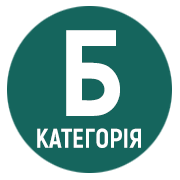“СТЕП І МОРЕ СКРІЗЬ БИТИЙ ШЛЯХ, СКРІЗЬ ЗОЛОТО, СЛАВА”: ЕЙДОЛОГІЧНИЙ КОМПЛЕКС У СИСТЕМІ ДЕРЖАВОТВОРЧИХ ІДЕЙ ДМИТРА ДОНЦОВА
DOI:
https://doi.org/10.31494/2412-933X-2019-1-9-76-84Ключові слова:
націоналізм, Україна, націєтворення, степ, море, шлях, слава.Анотація
У статті досліджується ейдологічний комплекс у системі державотворчих ідей Дмитра Донцова, обгрунтувано взаємозв’язок між образною системою його есеїстики та державотворчими ідеями. Тема актуальна з огляду на окремі спостереження авторів постколоніального періоду щодо націософського потрактування публіцистики 20-30 років ХХ століття, функціонального призначення та системного аналізу провідних образів у статтях Д. Донцова. З’ясовано, що публіцист хоча виражав ідейно-настоєві думки, постулати, тенденції своєї доби, але виходив із питомих українських реалій, потреб, вимог, запитів, сформував і показав шляхи націєтворення і націєствердження, без яких нація не існуватиме і не виживатиме. Концепти степу і моря, образи “живої” чи сплюндрованої землі, слава козацька вжиті Д.Донцовим задля того, щоб порушити в рецепції читача смисложиттєві для буття національної спільноти питання, тому й ейдологічна система спонукатиме повернути людину і народ на власний історичний шлях. У результаті роботи визначено, що провідним, наскрізним основообразом виступає Україна, що охоплює праналізовані в статті домінуючі образи степу, моря, землі, шляху та виступає фундаментальним смисловим концептом. Батьківщина осмислена публіцистом як опора екзистенції, як суто українська основа, яку потрібно боронити, захищати й охороняти. Воднораз – це ще й образ- код, який розкривається не ізольовано, а через чітко окреслену філософсько- есхатологічну дихотомію: воля/неволя, життя/смерть, свобода/рабство, буття земне/вічне життя, занепад/відродження. Літературний герой, перебуваючись у тісних взаємозв’язках з відповідними образними структурами, закорінюється або ж утрачає власні корені, відтоді й змінюється смислове онтологічне навантаження образу України, що літературно інтерпретується як історичний шлях, який охоплює безмежний часопростір, де ліричний герой онтологічно розмислює над складнощами вибору особистісної дороги, над доцільністю вже обраного шляху і уподібнюється власній державі, яка історично здійснюється, визначається, яким історичним шляхом їй крокувати.
Посилання
Баган О. Вісниківство як понадчасовий феномен: ідеологія, естетика, настроєвість / О. Баган. – Вісниківство. Літературна традиція та ідеї. – Дрогобич: КОЛО, 2009. – С. 6–49.
Донцов Д. Дух нашої давнини / Д. Донцов. – Дрогобич : Відродження, 1991. – 341 с.
Донцов Д. Козак з міліона свинопасів / Д. Донцов // Вісник. – 1935. – Річник 3. – Т. 2. – Книжника 5. – С.97–106.
Донцов Д. Літературна есеїстика: [монографія] / Д. Донцов. – Дрогобич : Відродження, 2010. – 688 с.
Іванишин П. Методологічні аспекти вивчення українського націоналістичного руху: національно-екзистенціальна перспектива [Електронний ресурс]/ П. Іванишин. – Режим доступу: // http://dontsov-nic.org.ua/index.php?m=content&d=view&cid=63
Шевченко Т. Кобзар [Текст] / Тарас Шевченко. – Донецьк : БАО, 2008. – 480 с.






